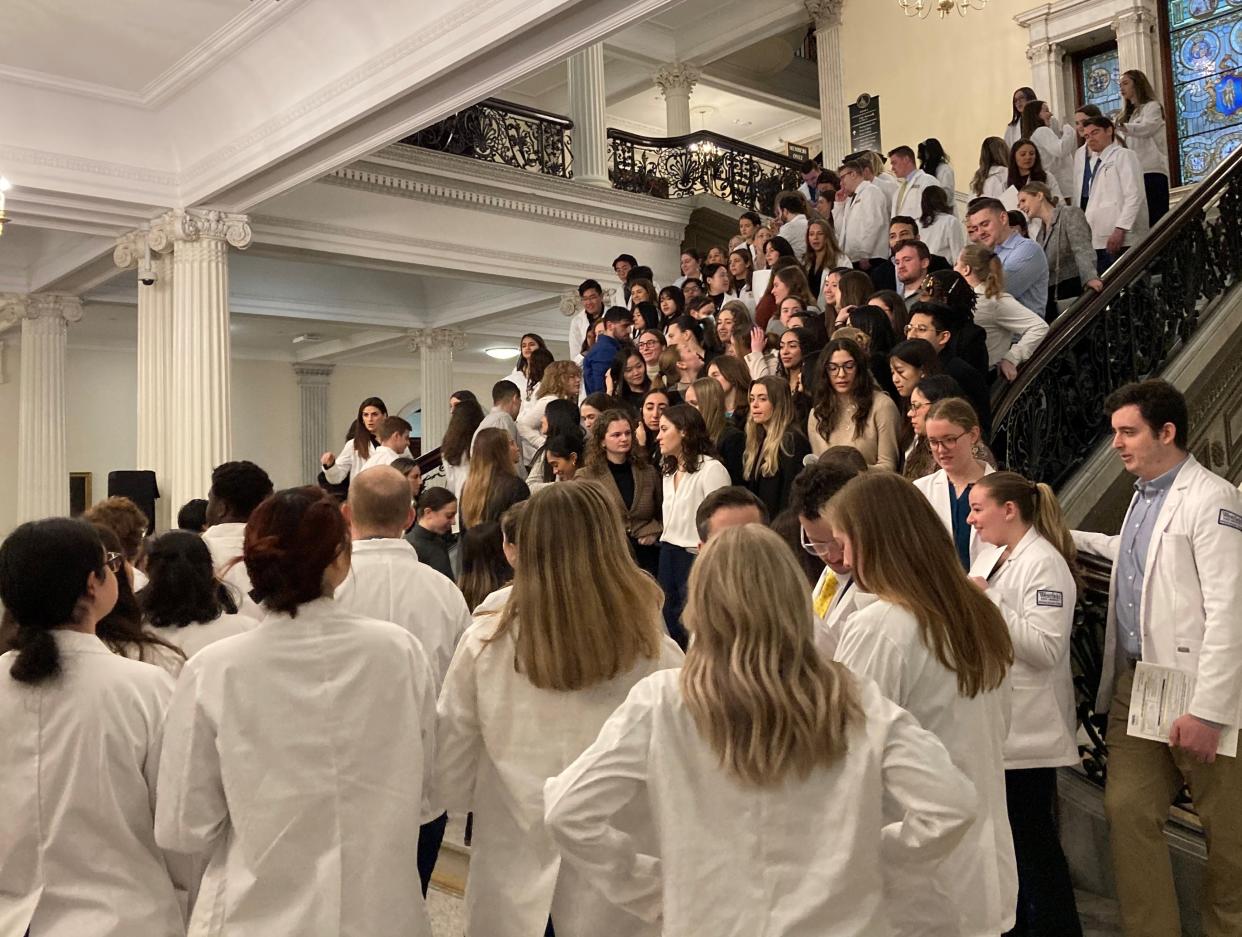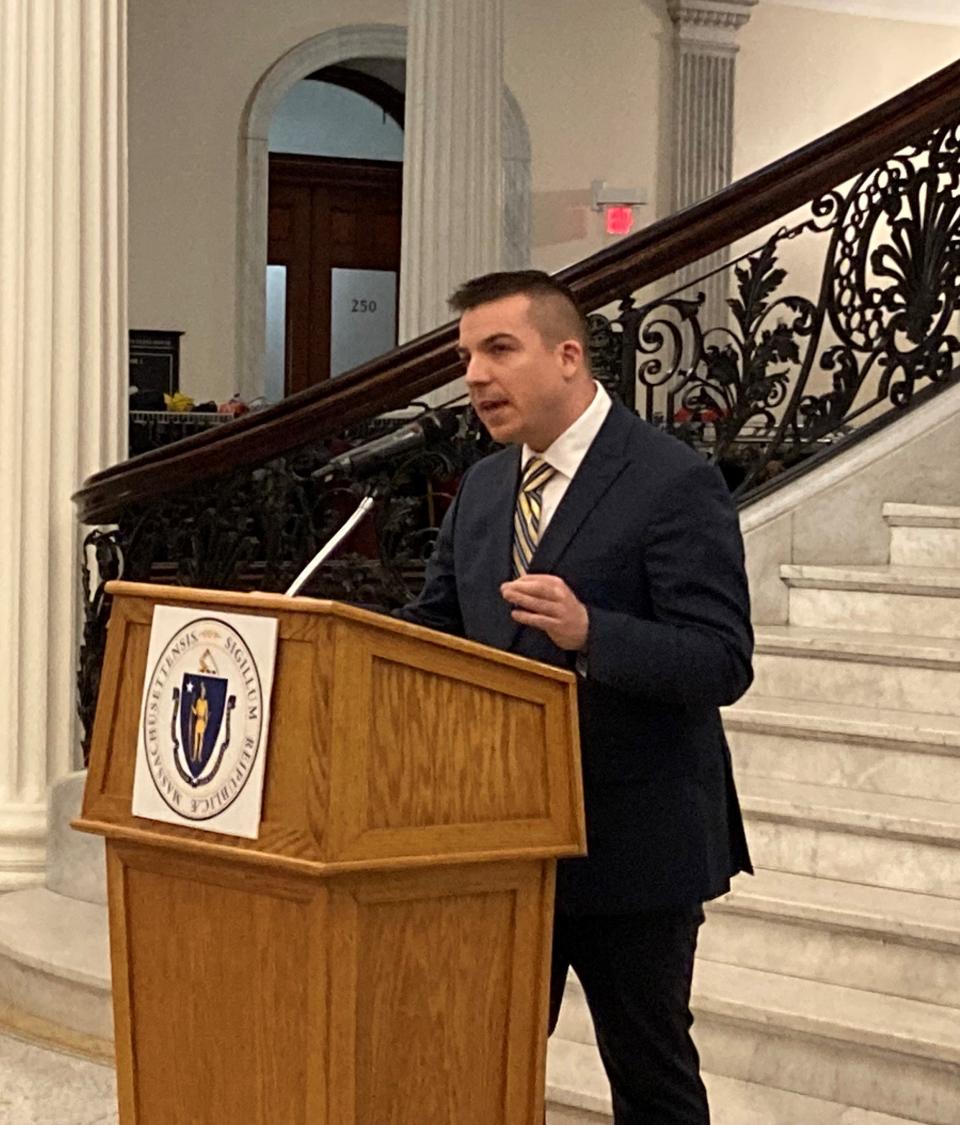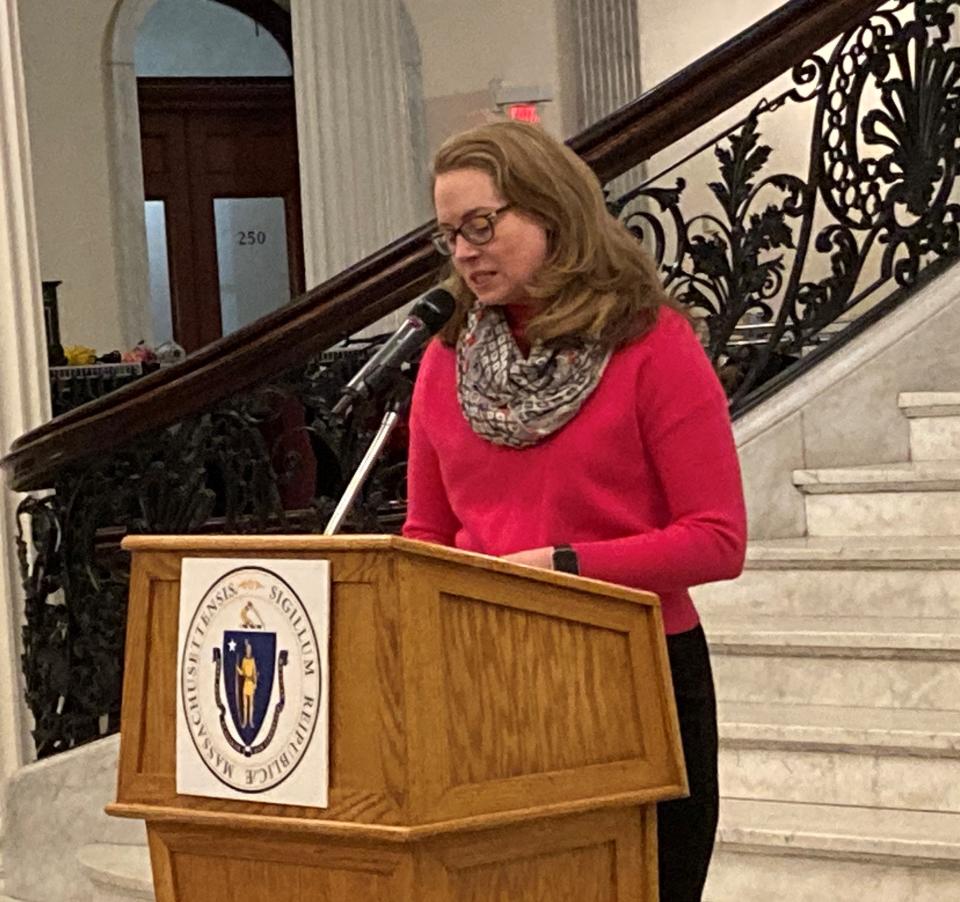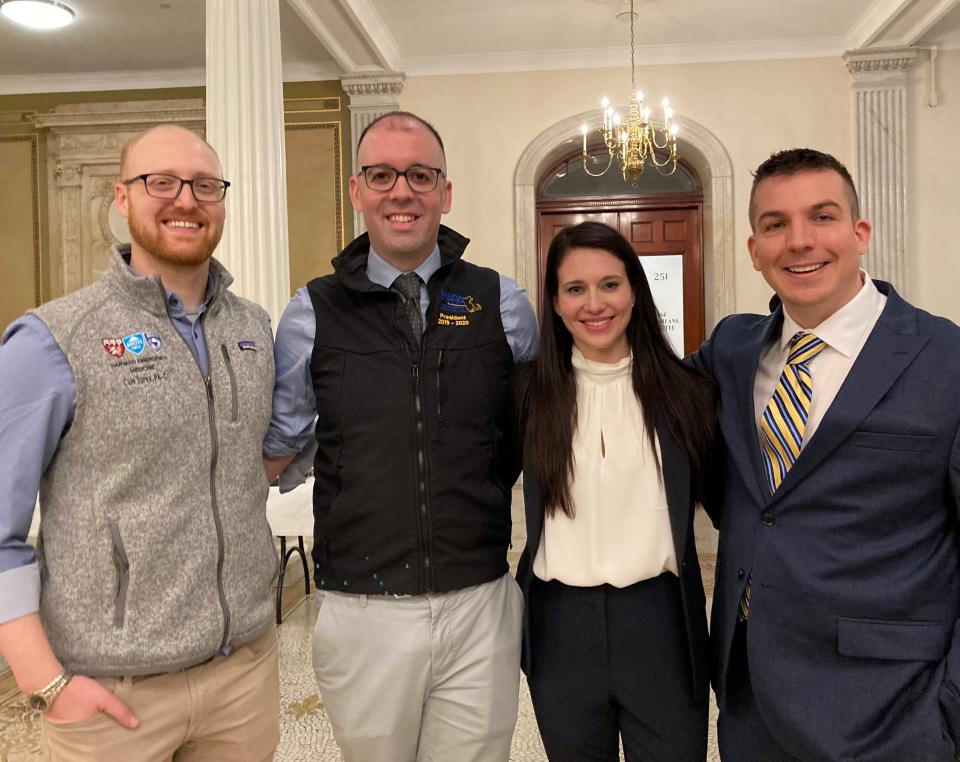Physician assistants urge state reform to streamline health care for patients

BOSTON ― A sea of white-coated physician assistants gathered at the foot of the Grand Staircase in the State House on Thursday to advocate for extending pandemic-era accommodations that eliminated the requirement for them to file a supervising physician with the state that allowed them to be deployed wherever they are needed.
The legislation, sponsored by state Rep. Christine Barber, D-Medford, and Sen. Julian Cyr, D-Truro, was dubbed a "commonsense move" by the legislators that they believe would increase access to care, is projected to lower costs and eliminate barriers to PAs practice, increasing access to health care for Massachusetts residents. The executive order, signed by former Gov. Charlie Baker in 2020, expired at the end of the state of emergency on June 15, 2021.
"The executive order signed during the pandemic allowed physician assistants to practice to the fullest extent of their licenses," Barber said. "This bill codifies the work done during COVID-19."
Barber cited the lack of hospital staff, the long wait times for patients turning to emergency departments for care, and the lack of primary care physicians available to undertake the preventive interventions and address the health care needs of the state’s population.
“A whole hospital system is in danger of collapsing and our community hospitals are struggling,” Barber said, referencing the financial crisis enveloping the Steward hospital network. “This bill is an answer to that crisis.”
Thea Nolan, president-elect of the Massachusetts Association of Physician Assistants, chose her career path as a young girl who enjoyed watching the surgeries on The Learning Channel. Raised by a single mother, she values the work-life balance afforded by the career.
Nolan works on both UMass Memorial medical campuses in Central Massachusetts as an interventional radiologist with a specialty in surgery. She deems herself a huge advocate for the profession and sought out leadership positions in the representative organization as a way of affecting change.
Physician assistants are allowed to offer primary and emergency care, stitch up wounds and set fractures. They can elicit medical histories, perform examinations and routine preventive measures like immunizations. They can request, perform and interpret diagnostic tests, and order and perform therapeutic procedures. They are also allowed to discuss physical and mental health issues, counsel patients and families and write prescriptions for most medications.

“In surveys, 89% of patients approve of their health care performed by PAs, and 90% believe PAs are good additions to health care teams,” said Duncan DaViau, a past president on the Massachusetts Association of Physician Assistants.
Extension of pandemic-era accommodations could address the long wait times, lack of timely appointments and challenges facing the health care industry in Massachusetts and beyond.
As an emergency department PA, DaViau treated a patient, a middle-aged mother of three who had been struggling with debilitating abdominal pain. The earliest appointment she was given with her primary care provider was months in the future. The pain, DaViau said, finally drove her to seek emergency care at the hospital.
In performing the pelvic exam, DaViau said he found a mass consistent with ovarian cancer. Although he is ignorant of her prognosis, he blames her condition on her lack of access to preventive care and the unprecedented shortage of care providers.

Rep. Marjorie Decker, D-Cambridge, urged the 200-plus PAs attending Lobby Day to visit their legislators and encourage them to support the bill. Their role, Decker said, was to serve as a bridge over the gaps in the health care system to advance preventive care as well as provide emergency care.
“They know you,” Decker said, explaining that many legislators see PAs as their primary care physicians. “You are not strangers.”
Two PAs practicing at Massachusetts General Hospital, Cole Turno and Josh Merson, chose their profession because of its accessibility.
“For me, it provided hands-on, front-line opportunities to provide important, holistic medical care,” Turno said. The field did not require the same years of study and allowed him a faster entry into a medical profession. “I could have a more immediate impact “
Both men relished working as part of health care teams that encompassed all members, from nursing assistants to physicians to specialists. Working at MGH allows them to work in different medical fields, from emergency department interventions to working in intensive care units and assisting physicians in different specialties.
“It’s different every day, and it’s always fulfilling,” Merson said, quickly adding that it can be very challenging regardless of where he is assigned.

But the PAs say they are gratified to be on the front lines of access to health care and be able to affect the long wait times, lack of appointments and the difficulties in accessing care for vulnerable populations.
“Who comes to emergency departments for care? For members of vulnerable populations, emergency departments are their access to health care,” Turno said. Many times they treat patients on an emergency basis, and because of the lack of access, end up following up with them and offering continuity of care.
The Massachusetts Medical Society opposes the bill, warning it could jeopardize "patient-centered protections and could result in a vastly varying quality of patient care." The group represents more than 25,000 physicians, residents and medical students.
"The Medical Society is concerned that this proposal, aimed at removing supervisory requirements for physician assistants will unnecessarily — and potentially dangerously — distance physicians from patients," MMS said in written testimony to the Public Health Committee in September. "The Legislature, in fulfilling its duty to protect patients of the commonwealth, has diligently established a thoughtful, patient-focused framework of policies and statutory requirements that apply to physicians in light of their ability to independently provide medical care and oversee the care provided by other health care providers."
Material from State House News Service was included in this story.
This article originally appeared on Telegram & Gazette: Physician assistants urge state reform to streamline health care for patients

